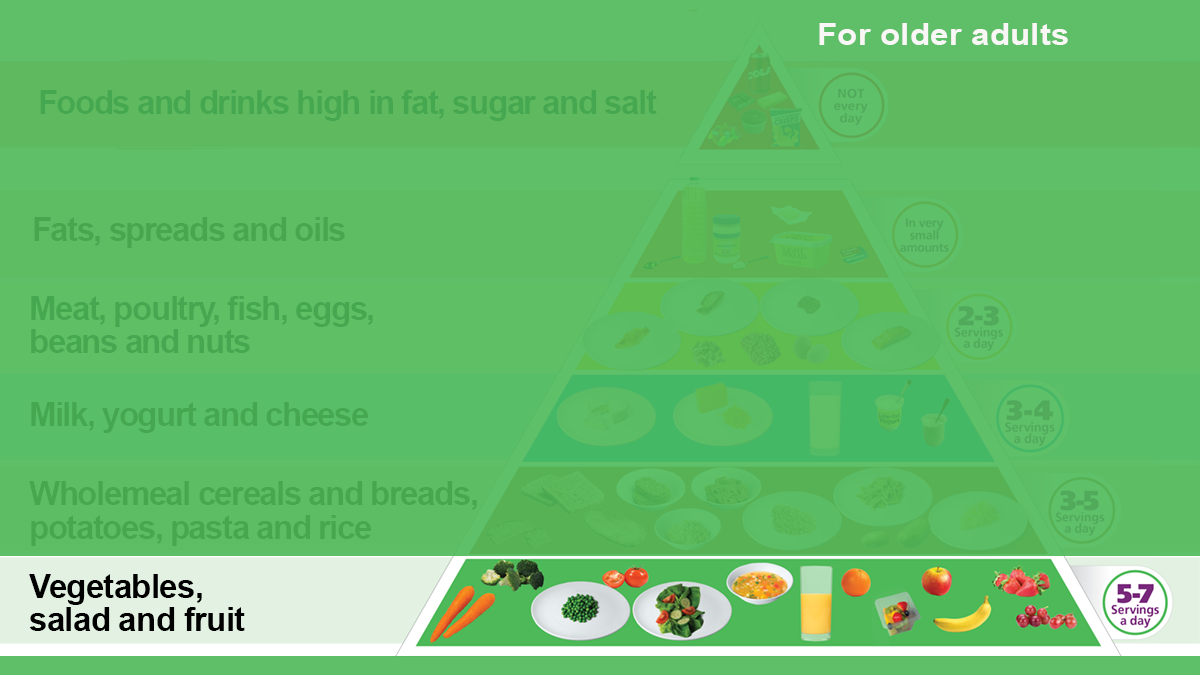Vegetables, salad and fruit

Fruit and vegetables are full of vitamins and minerals and are low in calories and fat.
Eating plenty of fruit and vegetables can help lower your risk of heart disease and some types of cancer. They are a great source of fibre which is important for healthy digestion and preventing constipation.
What counts?
- Fresh, frozen, dried and tinned varieties all count.
- Eat a variety of different colours as different coloured fruit and vegetables contain different vitamins.
- Choose fruit tinned in juice rather than syrup.
- Choose vegetables tinned in water rather than brine.
- Fruit juice or smoothies only count as one portion serving a day.
- Include foods and drinks rich in vitamin C, as these help the body absorb iron. Have some fruit or vegetables or a glass of orange juice with meals or with iron-rich foods like fortified breakfast cereal. Fruit, especially citrus fruit, green vegetables, peppers, tomatoes and potatoes are all good sources of vitamin C.
How much should I eat?
Aim to have 5 to 7 servings every day.
What is a serving?
- 1 medium sized fruit – apple, orange, pear, banana
- 2 small fruits – mandarin oranges, plums, kiwis
- Small fruits – 6 strawberries, 10 grapes, 16 raspberries
- 100g tinned fruit
- 40g dried fruit
- ½ cup cooked vegetables – fresh or frozen
- 1 bowl salad – lettuce, tomato, cucumber
- 1 bowl homemade vegetable soup
- 150ml unsweetened fruit juice
Download: Vegetables, salad and fruit factsheet

